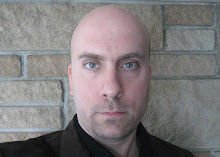What is consciousness? The dictionary definition of the word is ambiguous. It’s important that we understand why this is so. We need to understand what are the capacities and limitations of the language we are using to communicate on the subject, and that includes understanding the capacities and limitations of the thought process itself.
If we fail to examine our language, if we fail to examine the thought process, if we merely take these for granted as a given basis of discussion, I think our discussion becomes unscientific and is likely to end with a failure to communicate and with misunderstanding.
The given language we are using, conversational English, is based on the established paradigm of human nature, and that established paradigm is (in my consideration) a false paradigm, a paradigm based on false values and a misunderstanding of human nature. Examining that paradigm is one of our first tasks.
What is the mind capable of? Is the mind capable of modeling the subject? By that I’m asking if it’s possible for the mind to formulate a concept of what we are, a concept that is useful, a concept that facilitates an understanding of ourselves. Understanding is more than merely conceptual. Understanding includes every aspect of ourselves: physical, emotional, mental and spiritual. What is "spiritual" is another subject of our study and requires definition.
The mind can be applied with precision or not. Science is a precise use of the mind. The scientific process is systematic and methodical. Let me define those two terms. A system is a unity of arrangement. That means all the parts are present and interconnected to form a unified whole. A method is a regularity in procedure. Method implies consistency, rhythm, logic and predictability. The scientific process has been successfully applied to a variety of subjects. But one of the subjects that remains relatively untouched by science, at least by mainstream science, in my opinion, is the subject of consciousness. What I mean by the word "consciousness" needs some clarification. There are of course established sciences of psychology, psychiatry, sociology and philosophy. But these have, in my opinion, missed and avoided the real issue of consciousness.
Before I begin to explain what I mean by the word "consciousness" we need to come to an understanding of how to apply our minds to the subject. In other words, we need to recognize the necessity of applying the scientific process. Without using our minds precisely we are likely to misunderstand the subject and to misunderstand each other. Even when we try to communicate with each other on relatively trivial matters it’s easy to misunderstand each other. On a subject as complex and subtle as human nature, the interior workings of a man, the possibility of misunderstanding and of miscommunication increases dramatically.
I assert that it is possible and useful to apply the scientific process and to model the subject of consciousness. While any concept or model remains in itself a concept, that does not negate the usefulness of its application in life. I regard the concept or model as a mirror that reflects the subject. The subject is, essentially, ourselves. A reflection of ourselves, a clear reflection, can provoke a recognition in us, a recognition of ourselves. That recognition itself occurs within us, in life, and is not equivalent to the reflection or contained within the reflection. But the reflection can inspire a recognition of ourselves, and therein is the usefulness and application of the model.
Ordinary conversational English, like our given paradigm of human nature, fosters a misunderstanding of ourselves. It fosters the slurring together of facets of ourselves. It fosters the misidentification of aspects of ourselves. It fosters overlooking certain aspects of ourselves. If we are to get anywhere with the subject, we must apply our minds scientifically, that is to say with precision, and we must begin to construct a more precise vocabulary of our subject. We need to formulate a model of the subject and apply that model to ourselves in life, to test the model and thereby fulfill that aspect of the scientific process, independent verification.
The awakening of our intention to understand ourselves is itself the very understanding of ourselves. In other words, the intention with which we approach the subject of consciousness is consciousness itself. But our intention is fleeting and faint. It tends to fade. We are easily distracted. One moment we are genuinely interested in the subject and then the next moment we are lost in another. This is one of the most important points to recognize in our investigation. Our so-called consciousness is fleeting. It is dim. Our intention is weak. This is the problem. The recognition of this problem is the beginning of its solution.

No comments:
Post a Comment